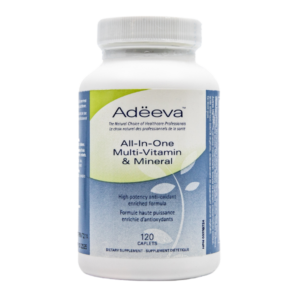
Vitamin B12 Receptor Autoimmunity Increases Risk and Severity of MS and Psychiatric Conditions
Source: J Translational Medicine (June 2024)
Lifestyle Medicine Update (July 3, 2024)
A remarkable study published in Translational Medicine on June 26, 2024, showed that many patients with multiple sclerosis, various psychiatric conditions and lupus (SLE), who showed progressive neurological decline and degeneration, had normal blood levels of vitamin B12, but very low brain levels of vitamin B12. When these patients were provided with immunosuppressant drugs and high-dose vitamin B12 therapy their brain levels of vitamin B12 increased, and remarkably their neurological symptoms greatly improved.
So, why can someone have normal blood levels of B12 and yet have low brain levels of B12? The answer, we are discovering, is that some people produce antibodies (autoantibodies) that destroy the receptor that allows vitamin B12 to enter the brain. The receptor is known as the CD320 receptor. So far, this problem has been identified in a number of patients showing neurological decline, who also have multiple sclerosis, lupus (SLE) and a variety of neuropsychiatric conditions. The good news is that once the brain level of B12 is restored there is significant reversal of the neurological problems and improved psychiatric outcomes for patients with various mental health problems. Interestingly, some people who produce antibodies against the B12 brain receptor (CD320 receptor) do not develop neurological problems or psychiatric problems because their brains are able to use an alternative method to get B12 into the brain (LDL-receptor).
Over the years various studies have shown that low blood vitamin B12 levels increase the risk of dementia and Alzheimer’s disease, as well as depression in the elderly (as well as younger individuals – see reference no 5 below). But we are learning now that it may be important to also assess brain levels of vitamin B12 (not just blood levels), which may be much lower than blood levels in individuals who produce B12 receptor (CD320 receptor) antibodies. I think the take-away message is that you should ensure that your vitamin B12 intake can help overcome some inherent brain B12 absorption obstacles that may be present. I personally like taking a high-potency multiple vitamin and mineral each day that includes a B-50 complex (which would include 50 ug of vitamin B12). That is a good start for most people. If neuropsychiatric problems or neurological decline problems begin to surface, I would suggest having your doctor check your blood for CD320 autoantibodies and/or assess the vitamin B12 level of your cerebral spinal fluid. This appears to be one more way to fight mental health problems and neurological decline tied to some serious neurological disorders.
I have included the references for this information in the text below.
References:
Pluvinage J.V. et al. Transcobalamin receptor antibodies in autoimmune vitamin B12 central deficiency. Translational Medicine. 2024, 16(753): Transcobalamin receptor antibodies in autoimmune vitamin B12 central deficiency | Science Translational Medicine
Alam A et al. Structural basis of the transcobalamin recognition by human CD320 receptor. Nature Communiations. July 14, 2016. https://www.nature.com/articles/ncomms12100#Sec17
Hicks L. Form of B12 deficiency affecting the central nervous system may be new autoimmune disease. Medscape. July 1, 2024. Form of B12 Deficiency in CNS May Be New Autoimmune Disease (medscape.com)
Michelakos T et al. Serum folate and B12 levels in association with cognitive impairment among seniors: Results from the VELESTINO study in Greece and meta-analysis. J Aging Health. 2013, 25(4): 589-616. https://pubmed.ncbi.nlm.nih.gov/23569157/
Kennedy D.O. B vitamins and the brain: Mechanisms, doses and efficacy – A Review. 2028, 8(2): 68 https://www.ncbi.nlm.nih.gov/pmc/articles/PMC4772032/#B118-nutrients-08-00068
Eat Smart, Live Well, Look Great,
Dr. Meschino
Recommended Supplements

Dr. James Meschino
ABOUT THE AUTHOR
Dr. James Meschino, DC, MS, ROHP, is an educator, author, and researcher having lectured to thousands of healthcare professionals across North America. He holds a Master’s Degree in Science with specialties in human nutrition and biology and is recognized as an expert in the field of nutrition, anti-aging, fitness, and wellness as well as the author of numerous books.

